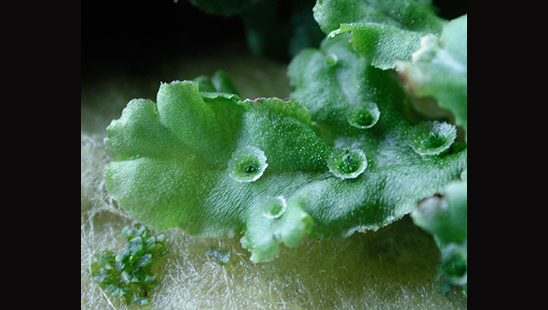UK scientist part of group that sequenced first liverwort genome
UK scientist part of group that sequenced first liverwort genome

Earth would look a whole lot different without plants rooted firmly in the ground. A University of Kentucky researcher was among the group of international scientists that recently sequenced the liverwort Marchantia polymorpha. Liverworts were among the earliest plants to live on land.
This is the first genome sequenced in this scientific family and may provide insights into land plant evolution. Their findings were published in Cell.
“Liverworts are considered to be the earliest diverging land plant group,” said Tomokazu Kawashima, assistant professor in the UK College of Agriculture, Food and Environment. “Understanding its genome will shed light onto how plants conquered the land and evolved into other land plants like flowering plants.”
Scientists in Australia and Japan led the genome sequencing project that answered important questions of how the plant dealt with light, how it stayed hydrated and how it developed its defense mechanisms once it moved on land.
They also studied the plant’s reproductive system, hormone signaling pathways and regulatory pathways. Researchers believe regulatory pathways in this particular species are similar to those of early land plants.
Kawashima’s role was to identify and organize genes on the genome related to specific gene switches that occur in a select group of proteins.
“Genes involved in chromatin structure and regulation were multiplied in Marchantia, and many of them show the specific expression at the sexual reproduction stage,” said Kawashima, who is a faculty member in the UK Department of Plant and Soil Sciences. “Understanding the detail function of these genes is likely the key to unraveling the evolution of reproduction system in land plants.”
The entire article is available at http://www.cell.com/cell/fulltext/S0092-8674(17)31124-8.
Research


